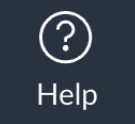Smeal Academy Fall 2023 Connections Newsletter 2 – AI + AI
The goal of the Smeal Academy is to equip the Smeal community with best practices and strategies for teaching and learning with technology to support Smeal’s business education and research needs. This newsletter provides some considerations related to Academic Integrity and Artificial Intelligence and some practical teaching and learning tips as we move through the semester. The following meme was clearly not about Smeal faculty or students 😊, but it made us laugh, so we are sharing it with you

Image Source: Reddit
A Message from Michelle Darnell, Director of Honor and Integrity
Many early conversations about the presence of ChatGPT in higher education have been focused on the current–and anticipated–capabilities of this program, and rightly so, as we seek to understand exactly how this technology can impact our personal and professional lives. Nonetheless, leadership through challenges that will come with the increased presence of artificial intelligence in higher ed will require consideration of and action related to the continuous development of the culture that helps define our college. To be clear, there are legitimate concerns about how the integrity of assessing a student can be corrupted because of the inappropriate use of ChatGPT. It must also be acknowledged that ChatGPT is–and likely will continue to play a part in–ushering in a new era of types of academic violations as well as considering new approaches to assessment. In the midst of artificial intelligence evolution, how our college approaches the undeniable role of technology in education is critical.
Anyone who has worked as a faculty member in higher education for more than a year understands never-ending frustrations with academic integrity violations. Frustrations arguably originate with students finding a new technique (often driven by technology, but also historically often involving some entrepreneurial spirit who has found a way to monetize ‘helping’ others) to achieve what they, unfortunately, see as the most important (short-term) end of their education: earning an ‘A’ on some assessment. The response is often faculty and administrators in higher education finding a technique to stymie student attempts to cheat the system that faculty desire to maintain. The result, one could argue, is a never-ending arms race, a competition between students and faculty for superiority in the development and accumulation of weapons to dismantle or sustain the status quo. ChatGPT is, in many conversations, being framed as the weapon faculty must currently disarm. However, introducing new technology into our world need not be the occasion for escalation in a “war” with our students; it can be an invitation to reassess and strengthen the very ‘why’ that drives higher education.
I encourage you to share resources that you find helpful or interesting with others through a ChatGPT for Business Education LinkedIn group that I co-manage or communicate with me directly with questions or suggestions related specifically to Smeal’s commitment to honor and integrity. In conjunction with other units within Smeal, I look forward to engaging with you through a planned series of workshops on teaching and learning in this era of rapid developments in artificial intelligence.
Challenges for using AI in your Classroom
Integrating Artificial Intelligence (AI) like ChatGPT and others into your classroom can be a bit scary and challenging. What are some challenges you might encounter?
- People have raised concerns for student academic integrity as well as for the longer-term impact on student motivation, engagement, and knowledge retention. Reflect on the threats and opportunities you perceive for your teaching and work from AI, and plan for these challenges
- Teachers unfamiliar with AI may find it difficult to integrate this technology into their teaching practices, and they may need support and training to get started. Please reach out to eLDIG for support if you have this challenge.
- AI may deepen the existing inequalities and divides because disadvantaged populations might get excluded from AI-powered education, resulting in a digital divide. Equity and inclusion should become the core values when designing policies.
Sources: Considerations for Using AI in the Classroom by Laura Schmidli , University of Wisconsin- Madison and Source: Incorporating Artificial Intelligence Into The Classroom: An Examination Of Benefits, Challenges, and Best Practices by Nouridin Melo and Source: Top 5 Challenges of Adopting AI in Education by Artificial Intelligence Board of America
Best Practices for using AI in your Classroom
The integration of Artificial Intelligence (AI) like ChatGPT and others into your classroom can affect the way students learn and teachers teach. So what are some Best Practices for using it?
- Add a syllabus statement. Check out these sample syllabus statements from Penn State’s AI, Pedagogy, and Academic Integrity working group.
- Consider revisions to your assignments. Making your questions more personal, reflective, specific, local, or complex (i.e., requiring higher-order thinking) may make it more difficult for students to use AI to complete adequately. But more importantly, these changes can make your questions more interesting and valuable to your students.
- Consider data and privacy policies. Before using ChatGPT or any other third-party tool in the classroom, instructors and students should review the data retention and privacy policies. For ChatGPT, the OpenAI FAQ is helpful. Using ChatGPT requires creating an account using an email address and a cell phone number. When designing an assignment where students can use ChatGPT, always provide an alternative for students who don’t want to share their data with a third-party tool (i.e., students shouldn’t have to share their data to be successful). Alternatives could include making part of the assignment optional, the instructor engaging with the AI on behalf of students, students using a different AI language model that does not require personal information, or students using another supplemental source (e.g., interview with a person, responses on social media, review article, etc.) in place of ChatGPT.
- Identify and communicate opportunities in your course. Some students are already using AI on their own. By acknowledging and working with AI, we can guide students in considering the capabilities of these tools, surface differing opinions among students around fairness, and help them align use of these tools with their own ethical frameworks.
Source: Considerations for Using AI in the Classroom by Laura Schmidli , University of Wisconsin- Madison
As we learn more about emerging technologies like ChatGPT and ways to integrate them into teaching and learning, the eLDIG team is here for the Smeal community. If you want to discuss an idea or need for your course(s), please don’t hesitate to contact us to schedule a consultation at [email protected].
Upcoming Sessions
Responsible use of Artificial Intelligence in Business Education and Research Reading and Discussion Group
Join us for the first session of a Smeal series on the role of artificial intelligence in our teaching and research, which will focus on our shared commitment to prepare leaders to responsibly leverage artificial intelligence in business. This session will be led by Dr. Michelle Darnell, Director of the Tarriff Center for Business Ethics and Social Responsibility in collaboration with the eLDIG team. Learn more about this first session and indicate your interest in participating in this informal reading and discussion group by completing this AI in BizEd Reading and Discussion Group Sign-Up Form.
Smeal Academy Sessions in the Works
We are planning a couple of sessions and are finalizing the details as of the writing of this newsletter. Here are the sessions we’ll be sharing more about soon:
- Universal Design for Student Wellness. Course design and teaching strategies to support student wellness and mental health. This will be a follow-up to our Summer Book Club that read Mind Over Monsters.
- Supporting Students with Learning Differences. Student accommodations and strategies that will help support the needs of diverse learners.
- AI + AI hackathon. Artificial Intelligence teaching and learning hackathon using design thinking strategies to develop solutions to the AI + AI challenge. This will be a different kind of session where we will have a kickoff and wrap-up meeting. In between these meetings, working teams will be formed and work together to design solutions for an ethically sound framework to integrate AI tools into our teaching and learning processes while ensuring that academic integrity remains a top priority. We will refine and define the problem statement at our kickoff meeting. We are looking for multi-disciplinary faculty and staff to join us to ensure a holistic, integrated approach to solve this issue we all face. Please email [email protected] if you’d like to be involved in leading the hackathon. All faculty and staff who support courses are welcome and will be invited to participate in the hackathon.
eLDIG ID Tips
Tip #1: Need to find a time to schedule a meeting and sick of having to toggle between Doodle and your Outlook calendar? You can use Microsoft’s FindTime Poll. Meeting Organizers can get started by creating a meeting in Outlook, adding your attendees, and then click the “Scheduling Poll” button. You can see and select all possible meeting times and attendees can indicate their preferences. You’ll never use Doodle again!
Tip #2: Canvas regularly releases feature updates. For example, the long-awaited delayed publish function for Canvas pages was deployed in October 2022. You can learn about new Canvas releases by clicking the “Help” button  in the Canvas navigation sidebar. Canvas Help Button Scroll down to find release notes.
in the Canvas navigation sidebar. Canvas Help Button Scroll down to find release notes.
NOTE: Recordings and resources from previous Smeal Academy sessions can be found on our eLDIG Website.
 Contact Us
Contact Us

 Contact Us
Contact Us




 in the Canvas navigation sidebar. Canvas Help Button Scroll down to find release notes.
in the Canvas navigation sidebar. Canvas Help Button Scroll down to find release notes.



 Upcoming Live Sessions
Upcoming Live Sessions eLDIG ID Tips
eLDIG ID Tips

